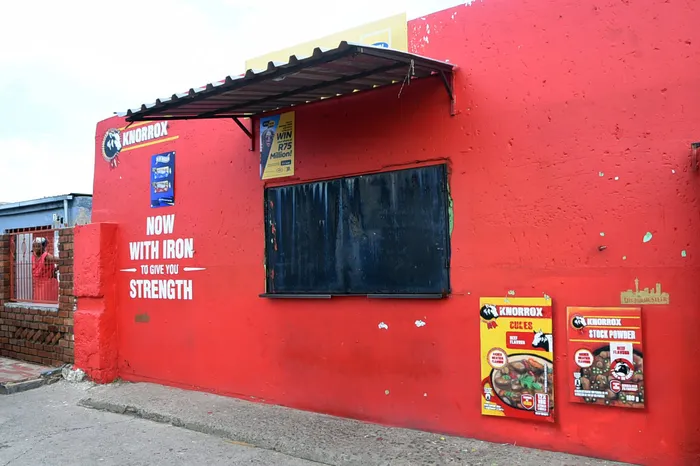
The R500m Fund, launched to bolster South African-owned spaza shops in townships and rural areas with stock, infrastructure upgrades, and training, has come under intense scrutiny.
Image: Itumeleng English/Independent Newspapers
A VIRTUAL briefing by the Department of Small Business Development (DSBD) on the progress of the R500 million Spaza Shop Support Fund descended into chaos last week, with MPs from across the political spectrum lambasting officials for “lacklustre” responses, unresolved corruption risks, and a controversial “middlemen” supply model that critics warned could hijack the initiative.
The Fund, launched to bolster South African-owned spaza shops in townships and rural areas with stock, infrastructure upgrades, and training, was under intense scrutiny.
Only 3 000 to 5 000 applications have been received — a fraction of the estimated 200 000 spaza shops nationwide — raising concerns about exclusion, bureaucratic hurdles, and whether foreign-owned shops were being sidelined.
The most explosive revelations centred around the Fund’s reliance on three unnamed Delivery Channel Partners (DCPs), private wholesalers tasked with supplying spaza shops. Opposition MPs accused the state of creating a “monopoly” for connected insiders.
“Why are these DCPs not listed in the presentation? Who are they? What are their markups? This is a middlemen scheme!” charged the DA’s Nico Pienaar, demanding the Gazette records detailing their selection. FF+’s Henk van den Berg echoed concerns: “Do spaza shops have to buy from these DCPs? Who pays them, the Fund or the shop owners?”
DSBD Deputy Director-General Qinisile Delwa sidestepped specifics, stating only that DCPs were “vital intermediaries”.
Lwandiso Makupula from the Small Enterprise Development and Finance Agency (Sefda) later admitted that 58% of spaza shops are Somali-owned and 25% Ethiopian-owned, leaving just 8% eligible for the Fund. But MPs were unmoved.
“This is a recipe for fronting. Cartels will use locals as fronts to access funds,” warned the ANC’s Peter Mabilo.
Pienaar slammed the Fund’s “reckless” exemption of spaza shops from immediate Companies and Intellectual Property Commission (CIPC) and tax registration, calling it a “free pass for abuse”.
“We’re bleeding taxpayers, yet here’s a state fund allowing six months’ grace before registration. This is anti-formalisation and anti-growth,” he said. DSBD offered no justification, deepening suspicions of lax oversight.
With Gauteng dominating applications, rural provinces risk being left behind. “Your roadshows are failing. Rural spaza shops are lifelines, why aren’t they prioritised?” asked chairperson Sonja Boshoff (DA).
The ANC’s Moses Modise blasted the DSBD’s “pathetic” outreach: “Where are the community radio ads? The local newspaper campaigns?”
Municipal licensing emerged as another crisis point. Many townships lacked digital systems, leaving spaza shops in limbo. “Some municipalities don’t even have licensing capacity. Is DSBD engaging the South African Local Government Association (Salga)?” Boshoff pressed. Delwa conceded that only the Northern Cape was piloting e-licensing, while KwaZulu-Natal and the Western Cape lead.
Despite Makupula’s assurance that “misused grants convert to loans”, MPs remained sceptical. “Where are the anti-corruption measures? Who monitors officials?” Boshoff asked. The MK Party’s Sarah Mokoena highlighted registration chaos: “The online system crashes constantly. Shop owners think they’re registered when they’re not.”
Frustrated by evasive answers, the Committee unanimously demanded an in-person follow-up meeting within a week. “This virtual farce is unacceptable. We need the Minister here, with full documentation,” Modise said.
Deputy Minister of Small Business Development Raesetja Sithole acknowledged “gaps” but offered little reassurance.
The Spaza Shop Fund — a flagship ANC initiative — now faces a credibility crisis. With murky supply chains, low uptake, and mounting allegations of exclusion and corruption risks, the DSBD’s next move will be decisive. As Pienaar warned: “Public funds demand transparency. Right now, we’re getting none.”
